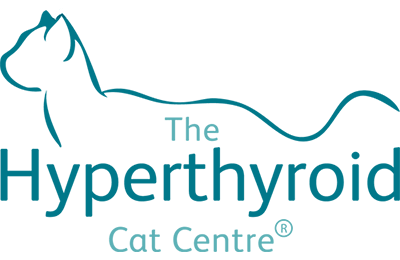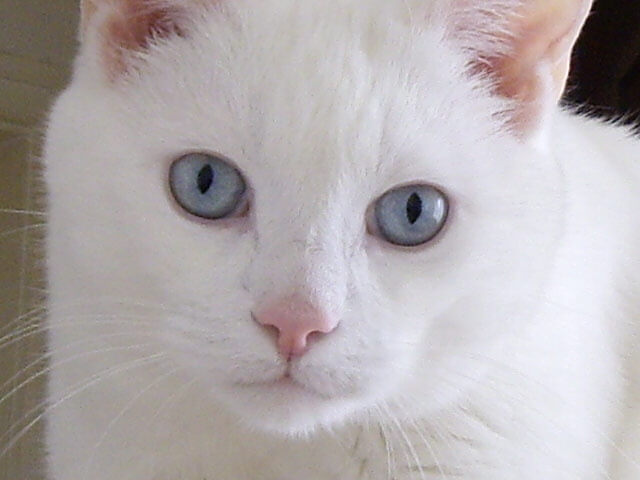Radio-iodine treatment

Lynx looking relaxed and happy following radio-iodine treatment at The Hyperthyroid Cat Centre
What is radio-iodine?
Radio-iodine is the gold-standard treatment for feline hyperthyroidism, almost always curing the condition – and at no risk to your cat.
Radio-iodine is the radioactive isotope Iodine-131. It destroys thyroid tumours, thereby curing hyperthyroidism. There are many advantages to radio-iodine treatment – for example, it is non-invasive, painless, permanent, and has no side-effects.
How unusual is radio-iodine therapy?
Radio-iodine is now very well established as a treatment for thyroid tumours in humans as well as animals, so you needn’t worry that it’s experimental or unproven. This type of treatment is very specialist, however; we have to be licensed to handle radioactive materials, and as one of the UK’s biggest radio-iodine treatment centres, we are very experienced in advising pet owners on safety once their cat has returned home.
How is radio-iodine administered?
The isotope is given as an oral capsule.
How does radio-iodine work?
Radio-iodine is absorbed very quickly into the bloodstream and then gets taken up by thyroid tumour tissue – and no other kind of tissue, including healthy thyroid tissue. It becomes concentrated in the tumour, and the beta-radiation it emits kills the tumour. Since any thyroid tumour acts as a ‘magnet’ for radio-iodine, the treatment will also tackle any tumours in the chest (which are notoriously more difficult to identify and treat) as well as the more common tumours in the throat.
How long does it take to work?
Radio-iodine kills thyroid tumours over time; most cats go back to normal thyroid hormone levels within a couple of weeks, but it can take up to 6 months.

Lady following her radio-iodine treatment
Does it always work?
Around 99% of cats treated with radio-iodine at our Centre will be cured permanently. In the vast majority of cases, this is achieved with just one treatment. However, in less than 1% of the 99% of cats which we cure, a second dose is required (which is covered by our initial treatment price, if it is identified within 6 months of treatment). If a cat doesn’t respond to a second dose, they probably have a cancerous tumour. In such a case, we wouldn’t usually suggest a third dose – for the simple reason that the level of radioactivity required to affect a malignant tumour would simply be too high.


